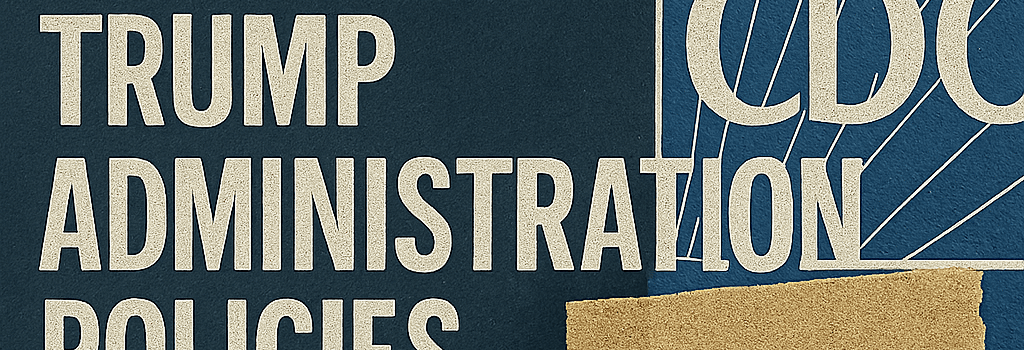CDC Report Muffled by Trump Administration Policies

By Beth Mole – Jul 28, 2025 1:45 pm
Executive Summary
The Morbidity and Mortality Weekly Report (MMWR), the flagship epidemiological journal published by the Centers for Disease Control and Prevention (CDC), has experienced a marked decline in output and accessibility during the current administration. A detailed investigation by MedPage Today reveals new clearance procedures, funding cuts, and disrupted publication schedules that threaten frontline public health communication. Sources also contend that studies now require sign-off from Health Secretary Robert F. Kennedy Jr., despite his lack of a formal background in health or medical science—a claim the Department of Health and Human Services (HHS) vigorously denies.
Key Findings
- MMWR publications dropped by more than 50% in May–July 2025 compared to the previous five-year average.
- Standard embargo procedures for journalists have been suspended, delaying critical outbreak alerts.
- For the first time in over six decades, MMWR failed to publish on a scheduled date during the January federal communication freeze.
Publication Trends and Statistical Analysis
MedPage Today analyzed MMWR release volumes for May through July over the five non-pandemic years 2018–2024. The average total during those windows was 76 issues, ranging from 55 to 89. In contrast, the same period in 2025 saw just 35 published reports—a 54% drop. Figure 1 summarizes these counts:
- 2018–2019 average: 72 publications
- 2022–2024 average: 80 publications
- 2025 actual: 35 publications
“The decline of MMWR makes us less safe because hospitals and public health professionals will be less informed about emerging threats,” said James Lawler, Director of the Global Center for Health Security at the University of Nebraska Medical Center.
Administrative Intrusion and Clearance Policies
Several sources, including a former CDC division director, report that all MMWR manuscripts now require direct approval from Secretary Robert F. Kennedy Jr. Sources characterize RFK Jr.’s involvement as unprecedented political oversight:
- Scientific Review Board Bypass: Internal peer-review committees have reportedly been sidelined in favor of a political appointee’s clearance.
- Denied and Delayed Submissions: External contributors from academic and state public health agencies say their submissions are either held indefinitely or rejected without standard scientific justification.
An HHS spokesperson called these allegations “categorically false,” but would not detail any alternative clearance workflow. Meanwhile, CDC staff have been instructed that no MMWR article may go live without explicit HHS communications office sign-off.
Impact on Public Health Surveillance Systems
MMWR’s rapid-turnaround reports are essential for detecting foodborne illness clusters, vector-borne pathogen outbreaks, and emerging zoonoses. The slowed publication cadence has several downstream effects:
- Delayed Response: State and local health departments rely on timely MMWR alerts to trigger epidemiological investigations and resource mobilization.
- Data Gaps: Less frequent publication creates blind spots in incidence curves for diseases like Lyme disease, West Nile virus, and salmonellosis.
- Laboratory Network Disruption: The CDC’s Laboratory Response Network (LRN) uses MMWR bulletins to calibrate testing protocols across its 150+ partner labs nationwide.
Technical Staffing and Funding Constraints
About 75% of MMWR content stems from internal CDC scientists, while the remainder is contributed by external researchers. Cuts to the CDC’s fiscal 2025 budget—approximately $1.2 billion less than the 2024 enacted level—have resulted in:
- Vacant Positions: Nearly 20% of epidemiologist roles within the CDC’s National Center for Emerging and Zoonotic Infectious Diseases remain unfilled.
- IT Infrastructure Delays: An ongoing modernization initiative to migrate MMWR to a cloud-based digital publishing platform has been pushed back by six months due to resource reallocations.
Comparative Analysis with Prior Administrations
While every administration exerts some influence on federal agencies, public-health experts note that direct editorial control of scientific content is virtually unheard-of. Under previous administrations:
- Rigid embargo schedules ensured that health professionals and press had simultaneous access.
- Clear, published guidelines defined peer-review and editorial independence for MMWR.
- Funding tracked rising costs for genomic surveillance and digital dissemination.
Expert Recommendations and Next Steps
To safeguard MMWR’s integrity and restore its critical role, experts propose:
- Legislative Shield: Codify MMWR’s editorial independence via Congressional statute, similar to GAO reporting protections.
- Streamlined Clearance: Revert to a science-led peer-review board with transparent criteria and timelines.
- Dedicated Funding: Earmark incremental budget increases of at least 5% annually for CDC communications and IT modernization.
In upcoming appropriations hearings, House and Senate committees will have the opportunity to address these concerns and ensure that MMWR continues to function as the nation’s frontline early-warning system for public health threats.